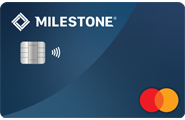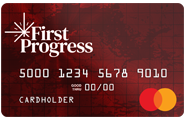Table Of Content
Key Takeaways
- When you receive a pre-screened credit card offer it means that the bank has already made a background check on you and has determined that you qualify as a good cardholder.
- Receiving any type of pre-screened credit card offer does not affect your credit score.
- If you decide to go ahead and apply for the credit card, the actual terms that the credit card company might approve might be different from the one in the initial offer. This might include different interest rates or credit limits.
- It is always worthwhile to watch out for credit card scams. The fact of the matter is that if the offer is too good to be true, then it might be a scam.
Credit card companies often rely on information from credit reporting companies to give a firm offer to consumers. These consumers are the ones whose credit histories meet the card company's criteria (for example, they met a minimum credit score).
The credit card company does not provide them with an outright credit card. The target consumer should still apply and go through the approval process.
What Are Pre-Screened Credit Card Offers?
Pre-screened offers are advertisements or promotions for credit cards based on a potential customer's credit information gathered from credit bureaus. Consumers receive these offers because the issuer believes they may be a good fit for the product based on their credit profile.
Receiving a pre-screened offer does not guarantee approval for the product, and the consumer must still apply and go through the typical application process.
Card companies would usually either pay the credit bureaus (Experian, TransUnion, and Equifax) for a list of borrowers that fit their criteria or come up with a list of names and ask the credit bureaus who among them include the requirements.
They can access your credit history and see if you've filed for bankruptcy in the past year. They'll also know how many credit cards you have, along with your total credit and credit limits. By reviewing all the available information, the card issuer can tailor their offer to better suit your financial profile.
How Does It Work?
First of all, the card issuer would have already done a background check on you and decided that you qualify as a good cardholder.
Once you put in your application, the card company can review your application and check other information to find out if your credit history still meets the criteria they used to prequalify you that were in place when they made the offer.
This time, they can ask for an updated credit report and also determine if you have sufficient income to pay your credit card bills. If from the time they made the offer, you’ve applied for new credit or missed a payment, your credit score may have already gone down and therefore no longer qualify for the offer.

Why Do I Need It?
Most of the time, lenders search for consumers with superior credit histories and give them offers than can further help them build their credit with responsible use.
Usually, those with the best credits receive the most attractive offers. These pre-screened offers are normally a lot better than the product choices, rates, and terms that you can find in the market.
How Does Pre Screended Offers Affect My Credit Score?
Just receiving pre-screened credit card offers in the mail does nothing to your credit score. Even if the card issuer obtained your information from a credit-reporting agency, they only used a “soft inquiry” that does not affect your score.
A “hard inquiry” on your account will pull your score down.
However, if you decide to apply for one of these offers, that will be the time when the card issuer will pull your credit report with a hard inquiry. If you have so many hard inquiries going on at any one time, it will negatively affect your credit score dramatically. The key is to carefully consider the offers you receive and choose the best ones.
The Card Issuers May Approve You For Different Terms
It may come as a surprise when the card company approves your new credit card, it will have terms and conditions that are not exactly the same as their original offer. This happens from time to time. Your credit card will have its own APR (Annual Percentage Rate) which is the interest rate that the card company will assess if you carry a balance from month to month.
A higher APR means that you will pay more to keep your card if you carry a balance. You might notice that many credit cards advertise a low APR but you’ll probably only get it if your credit history and credit score are all excellent.
Make sure you go through the terms and conditions of the card so that if they approve your application, you understand your APR and other financial obligations that may come due to your credit.
If you don’t plan on carrying a balance over month to month, then you won’t have to worry about any interest on the card although you may still have to pay other charges and fees.
Watch Out For Unrealistic Offers
It's really appealing to receive a personalized offer for a credit card that an issuer would approve almost a hundred percent but you can’t be too careful about it. Pre-screened mailings are natural breeding grounds of potential scams.
Should an identity thief get his hands on one of these offers from your mailbox or trash, fill it out using your personal info (but maybe use a different address) and mail it to the card company, they can get a card under your name. This should be enough to motivate you to be more cautious.

Pre-Approved Vs. Prequalified Credit Card: What’s The Difference?
You may find some pre-approved credit card offers online. It’s just primarily an online approval tool that involves you filling out a short, simple online form where you encode your basic personal and financial information.
From there, the card issuer’s website will check if you meet their criteria and if so, will show you an offer that they deem best fits your profile and financial needs.
As mentioned earlier, you can get pre-approved for a credit card by responding to an offer you receive in the mail (also known as pre-screened offers). The card issuers get their list of potential customers from the credit bureaus based on certain criteria, and if your information meets those criteria, you're likely to receive an offer.
If you received a pre-screened offer, it means that the card issuer already did an initial background check and found your credit history and other personal details sufficient to their criteria.
Banks and credit card companies send out pre-screened offers when they think that a card would fit for a person who is a member of a certain organization, falls within a certain age range, belongs to a specific income bracket or has met a particular credit score.
Top Offers
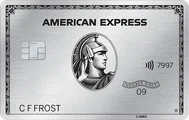
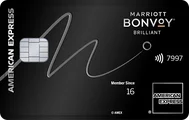
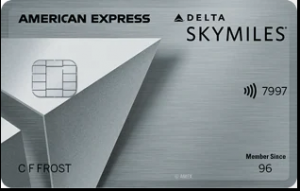
Top Offers
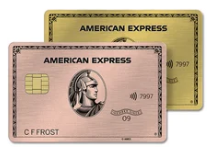

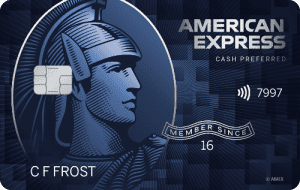
Top Offers From Our Partners
How To Stop Receiving Offers?
In case you don’t want to receive any more pre-screened offers from the card companies, the FCRA allows you to “opt-out” – meaning you would like to stop receiving these types of offers from hereon.
Opting out will not affect your ability to apply for credit or insurance in the future. You can opt-out online, by phone or by mail.
- To opt-out online, go to www.optoutprescreen.com. The three nationwide credit bureaus entered into a joint venture to put up this website to help consumers control pre-screen offers that come in the mail. On this website, you can fill out an online form to opt-out from getting offers for five years. You may also print the form and mail it in to opt-out permanently. In case you have opted out before and now has a change of heart, you can just opt back in. Remember that this is the only website that the credit bureaus authorize. The website itself will not reach out to consumers so be wary of phone calls or emails from anyone claiming to be from the site. They are most likely fraud attempts.
- By phone, simply call the toll-free number (888) 5- OPT-OUT.
- Through mail, send a written request. If you would rather submit your request by mail, you may do so to permanently opt-out. You can learn more about sending written requests to the credit bureaus and get their addresses here.
The Fair Credit Reporting Act Governs Pre-screened Offers
Card issuers turn to pre-screened credit card offers to lessen their cost of direct marketing (usually by mail) by immediately eliminating unqualified prospects. This reduces the high-risk accounts and narrows down the list of the best prospects even before they send out the offers by mail.
The law requires the card issuers to make a firm offer of credit and inquiry posting for this type of solicitation. For the consumers’ protection, the Fair Credit Reporting Act (FCRA) governs these pre-screened offers.
Here are the specific guidelines that the FCRA requires for pre-screen offers:
- The should provide special notices to the prospective consumers according to the pre-screened list.
- They should extend firm offers of credit to consumers who qualified in the pre-screening although they can limit the offers to those who passed the pre-screening.
- They must keep records of their pre-screening lists.
- There should be an option for consumers to opt-out of the pre-screened offers. The lenders and the consumer reporting agencies must sanitize their lists to reflect the names of those who opted out of the offers.
Lastly, keep in mind that the lenders have logged a soft inquiry into your credit file during the pre-screening process.
Got A Pre Screened Offer? Don't Forget To Shop Around
Don’t settle for the first pre-screened credit card offer you receive because it may not be the best one for you. Before you file your application, check the credit card companies’ newest offers online.
By going through the other offers, you may find something better than what you got from the mail. Shopping around opens the possibility of finding the best deal. The credit card that’s most ideal for you could be from another card company.
Compare the features of the different credit cards that you qualify for including the rewards, perks, interest rate and fees.

